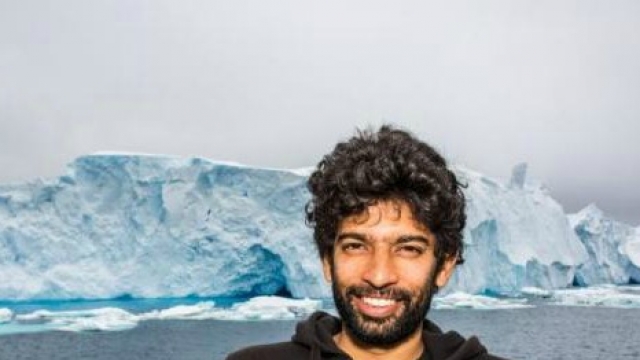Siddharth Chakravarthy (Team iamin)
A navigator with the Merchant Navy, Siddharth Chakravarty, chanced upon the Sea Shepherds, an international non-profit, marine conservation organization and volunteered with them.

The thrill and the adventure of capturing rouge vessels, the romanticism of protecting the endangered and the sheer beauty of Antartica – as a Sea Shepherd; Siddharth Chakravarty’s life is that of a textbook explorer. Yet it is the passion of an activist which trumps everything else. When iamin caught up with this 34-year-old in Mumbai, a few hours before he left for Melbourne to prepare for ‘Operation Icefish’, he spoke about the reasons behind his choice of profession – the good, the bad and the ugly.
From merchant navy to Sea Shepherd
For him, water has been a familiar territory. His grandfather had been a pilot on the Ganges and it was a natural course of action for Siddharth to take to the seas. As a navigator, he started off with the Merchant Navy in 2001, travelling to places all across the world for a decade. Yet the reason behind quitting a well-paid profession to embark on marine conservation has a much more deep-rooted cause.
"I was born in Bhopal. A year later, in 1984, the gas tragedy claimed the lives of thousands, destroying everything. I was very young, but I was still a part of it. Twenty-five years later I was aboard a ship carrying a chemical which had the potential to cause equally widespread damage. This thought took hold of me, and I realised I wanted a different life. I wanted to save life, protect it and so started looking for other opportunities,” said Siddharth.
It was almost two years later that he chanced upon the Sea Shepherds, an international non-profit, marine conservation organization and volunteered with them. Since then, he hasn’t looked back.
Chasing a dream, and pirates
“The pay now is only a tenth of what I would earn in the merchant Navy but money is inconsequential. I had volunteered for the first voyage, paying for travel and everything else. Yet I knew that this was what I had been looking for and now work for the Sea Shepherd. Profit from the loss of lives is mercenary. I repurposed my skill set to save and protect marine biodiversity,” Siddharth said, delving into his work.
Whether it was illegal whaling in the pretence of research or sinking the Thunder, an illegal vessel listed by the Interpol, after a 110-day chase, he has loved his five year stint. “There needs to be a brave commitment to saving Antarctica and its rich bio-diversity. Let’s not ruin a healthy eco-system,” he said while pointing out that a lack of proactive surveillance and unified international effort is destroying what is left.
“The high seas is open territory for illegal fishing, and it is a few of us who are trying to prevent it. The Sea Shepherd follows a protocol of non-violent direct action, which includes warning followed by capturing or sinking of a pirate ship,” says the navigator who has also captained the The Steve Irwin for Operation Zero Tolerance.
Seas without boundaries
Now, Siddharth is looking forward to pursuing further studies on analysis and policy. He believes that there must be a certain common ground between research and real-time experience for an effective solution. “The seas are a difficult territory to mark and constant surveillance is not possible, therefore a lot of illegal activities take place. Also there are too many dynamics between nations and a consensus on marine conservation is a tricky task,” says Siddharth who also spoke at the UN earlier this year.
"For India, it is more of coastal policy which is looked into, and it differs from distant water maritime issues. However, there are three departments – industry, science and enforcement – which have to be implemented together to bring about any effective change,” says Siddharth before signing off to catch a flight to his next adventure.
(Siddharth Chakravarty will be speaking at the TEDxGateway, Mumbai, on 5th December, 2015 at NCPA)
Visit iaminin to read more.